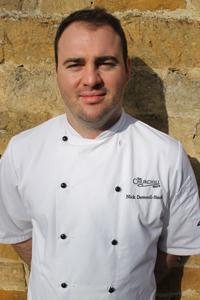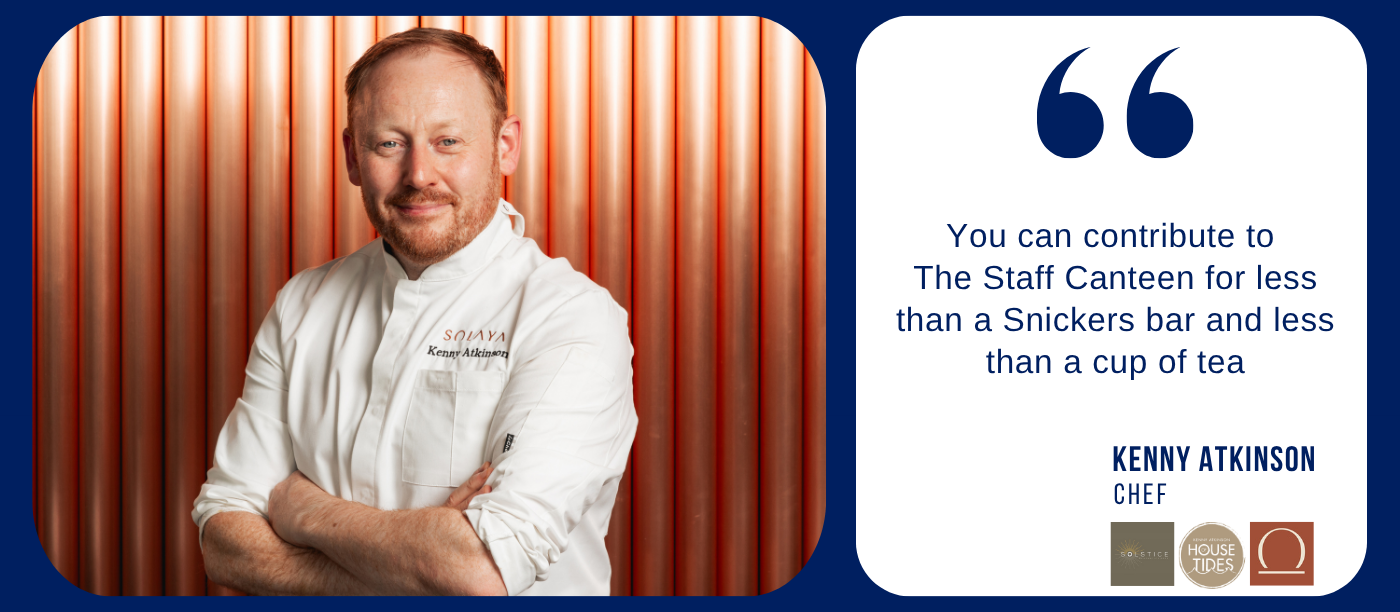have that personal touch of how it gets from there to on the plate.
What are your top tips for aspiring Chefs?
Start at the bottom, learn the basics, be a good commis Chef. It’s very important not to get ahead of yourself.
Listen. It might sound very basic, but if you listen in the kitchen it’s very a talk about passion for food and flavour and seasonality, so really listen to the older Chefs – I learned a lot from that.
Read a lot. Buy a lot of books, learn from the Internet. One of my favourite books is White Heat by Marco Pierre-White. He was my cooking hero - when I was a starting Chef I wanted to be like him. But obviously, at that age I wasn’t able to do the dishes he was doing but it made me want to push to do that. I think at the beginning read the practical cookery – Gary Rhodes has a pastry book out – it’s brilliant, all the recipes work.
It’s a very hard industry. If you want to get to the top, it’s really really tough, so make sure you really want it. It’s long and unsociable hours, it’s hard work, there’s a lot to learn and you’ve got to really really want it to get to the top. Make sure this is what you want because this is a lot of sacrifice. It’s in a Chef’s blood to be a Chef. Once you’re in it, it’s hard work, but I think there are some real benefits and some real highs. It’s hard work but I love it.
What do you look for in a CV or during a job interview?
Very simple really. I like to sit down with the young Chef and look in his eyes, and if he’s got passion you can work with that. If they get excited when they talk to you about food, that’s massively important for me. It’s very important for me that a Chef has done his time. They may have gone to work for somebody for one or two or three months, but realistically, you don’t learn much in the first couple of months. I like to see a couple of years in two or three really good places. A lot of top Chefs look for that. My advice is, you should work at a top place for two years – you learn for a year and then you give it back.
If you could go back and change any of the choices you made in your career, what would that be?
I think I learned so much from going to London, and not being from London, I spent five years of my career outside of it, so I’m thinking I might have gone slightly earlier to work for what I call the big boys.
View Feature posts about Nick Deverell-Smith
Find a Chef Job
Whether you're an aspiring Chef soon to be leaving education, or you are an established Chef looking for a new culinary challenge, we have a variety of Chef roles to suit you;
- Head Chef Jobs
- Executive Chef Jobs
- Sous Chef Jobs
- Commis Chef Jobs
- Chef de Parties Jobs
- Pastry Chef Jobs













